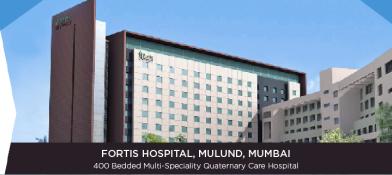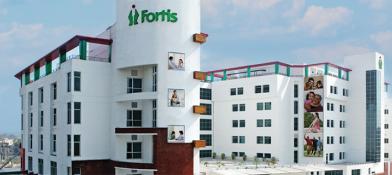About Paediatric Surgery
What is Pediatric Surgery
Pediatric surgery is a subspecialty of surgery focusing on providing surgical care to infants, children, and adolescents. Pediatric surgeons are trained in a distinct set of skills and expertise to manage the unique physiological and developmental differences in young patients.
Subspecialties of Pediatric Surgery
Pediatric surgery encompasses various surgical procedures aimed at treating congenital anomalies, injuries, and tumors. These include:
- General Pediatric Surgery: This procedure is used for appendectomy, hernia repair, and correction of gastrointestinal anomalies like pyloric stenosis or malrotation.
- Neonatal Surgery: Neonatal surgeons treat newborns with congenital disabilities, such as congenital diaphragmatic hernia (CDH), esophageal atresia, or abdominal wall defects like gastroschisis.
- Pediatric Urology: This procedure is used to treat conditions affecting the urinary tract and reproductive organs in children, including hypospadias, undescended testes, vesicoureteral reflux (VUR), and urinary tract obstruction.
- Pediatric Orthopedic Surgery: Pediatric orthopedic surgeons treat musculoskeletal conditions, such as congenital limb deformities, clubfoot, scoliosis, fractures, and sports injuries in children.
- Pediatric Cardiothoracic Surgery: This subspecialty includes surgical interventions for congenital heart defects, acquired heart diseases, and thoracic conditions like congenital diaphragmatic hernia or chest wall deformities.
- Pediatric Neurosurgery: Pediatric neurosurgeons treat conditions affecting the brain, spinal cord, and peripheral nerves, including hydrocephalus, brain tumors, spinal dysraphism, and craniosynostosis.
- Pediatric Otolaryngology (ENT) Surgery: ENT surgeons address the disorders of the ears, nose, and throat in children. They perform tonsillectomy, adenoidectomy, tympanoplasty, and correction of congenital anomalies like cleft palate.
- Pediatric Plastic and Reconstructive Surgery: Plastic surgeons repair congenital deformities, traumatic injuries, and cosmetic concerns in children, including cleft lip and palate repair, craniofacial reconstruction, and scar revision.
Types of Pediatric Surgeries
These include:
- Appendectomy: Surgical removal of the inflamed appendix to treat acute appendicitis
- Hernia Repair: Surgical correction of inguinal (soft tissue protrusion), umbilical, or other abdominal wall hernias to prevent complications
- Circumcision: Surgical removal of the foreskin
- Tonsillectomy and Adenoidectomy: Surgical removal of the tonsils and adenoids
- Hypospadias Repair: Surgical correction of a congenital condition wherein the opening of the urethra is located on the underside of the penis rather than at the tip
- Orchiopexy: Surgical correction of undescended testes into the scrotum to prevent infertility and reduce the risk of testicular cancer
- Cleft Lip and Palate Repair: Surgical correction of congenital orofacial clefts to improve feeding, speech, and facial appearance in affected children
- Gastrostomy Tube Placement: A surgical procedure involving inserting a feeding tube into the stomach to provide nutrition and hydration for children unable to eat or swallow adequately
- Ventriculoperitoneal (VP) Shunt Placement: Surgical implantation of a shunt system to drain excess cerebrospinal fluid from the brain into the abdominal cavity
- Congenital Heart Defect Repair: Surgical procedures to correct structural abnormalities of the heart and blood vessels
Techniques Used in Pediatric Surgery
Different techniques are used in different subspecialties within pediatric surgery and include both traditional and innovative approaches.
- Open Surgery: Open surgical techniques access the surgical site through one or more incisions to visualize the anatomy and conduct the procedure.
- Laparoscopic Surgery: Laparoscopic surgery is a minimally invasive surgery that involves making small incisions through which specialized instruments and a camera (laparoscope) are inserted into the body cavity to conduct the surgery.
- Thoracoscopic Surgery: Thoracoscopic surgery focuses on operating within the thoracic cavity (chest).
- Robot-Assisted Surgery: Robot-assisted surgery combines advanced robotics technology with minimally invasive techniques to enhance surgical precision and skill.
- Endoscopic Surgery: Endoscopic procedures use endoscopes to visualize and operate within the body’s natural openings or through small incisions.
- Fetal Surgery: Fetal surgery involves performing surgical interventions on the fetus while still in the womb to address life-threatening congenital anomalies or conditions that can lead to significant morbidity or mortality if left untreated.
- Tissue Engineering and Regenerative Medicine: Techniques such as tissue scaffolding, cellular therapies, and bioengineered constructs address congenital disabilities, traumatic injuries, and acquired conditions, reducing the need for traditional surgery.
Risks in Pediatric Surgery
While advances in surgical techniques, anesthesia, and perioperative care have significantly reduced risks, it’s essential to be aware of potential complications of pediatric surgery, including:
- Anesthesia Risks: Anesthesia can pose risks such as allergic reactions, respiratory depression, airway obstruction, and adverse reactions to medications.
- Infection: Surgical site infections can occur following pediatric surgery, particularly in procedures involving open wounds or inserting foreign materials such as implants or catheters.
- Bleeding: Children may be at an increased risk of bleeding due to their smaller blood volume and differences in coagulation factors compared to adults.
- Organ Injury: Organ surgery carries a risk of accidental injury, such as laceration, puncture, or ischemia.
- Pain: Inadequate pain control can lead to distress, delayed recovery, and complications such as respiratory depression, ileus, or immobility-related complications.
- Scar Formation: Surgical incisions in pediatric patients might result in scar formation, which can vary in appearance and texture depending on wound healing, skin type, and surgical technique.
- Adverse Reactions to Medications: Children may experience adverse reactions to medications used before, during, or after the surgery, including antibiotics, pain medications, anesthetics, and other drugs.
- Neurological Complications: Neurological surgery poses a risk of neurological injuries, paralysis, sensory deficits, or cognitive impairment.
- Long-Term Functional Impairments: Some pediatric surgical procedures might result in long-term functional impairments or complications, mainly if the surgery involves major organs, joints, or sensory organs.
- Psychological Impact: Pediatric surgery can have a psychological impact on children and their families, leading to anxiety, fear, trauma, or adjustment difficulties.
With its unique challenges, advancements, and prospects, pediatric surgery remains a dynamic and vital field within medicine, dedicated to promoting the health and well-being of pediatric patients across the globe. Leveraging research, technology, and clinical practice, Fortis holds promise for improved outcomes, quality of life, and equity in pediatric surgical care.
Related Specialities
Other Specialities
-
Explore Hospitals for
Fortis Cancer Institute, Defence Colony, New Delhi Fortis Memorial Research Institute, Gurgaon Fortis CDOC, Chirag Enclave, New Delhi Fortis Escorts Heart Institute, New Delhi Fortis Flt. Lt. Rajan Dhall Hospital, Vasant Kunj, New Delhi Fortis La Femme, Greater Kailash II, New Delhi Fortis Escorts Hospital, Faridabad Fortis Hospital, Noida Fortis Hospital, Shalimar Bagh, New Delhi Fortis Escorts Hospital, Amritsar Fortis Hospital, Mohali Fortis Escorts Hospital, Jaipur Fortis Hospital, Anandpur, Kolkata Fortis Hospital CG Road Bangalore Fortis Hospital - Greater Noida Fortis Hospital & Kidney Institute, Gariahat, Kolkata Fortis Hospital BG Road Bangalore Fortis Nagarbhavi Bangalore Fortis Hospital, Rajajinagar, Bengaluru Fortis Hospital, Richmond Road, Bengaluru Hiranandani Fortis Hospital, Vashi, Mumbai Fortis Hospital, Mulund, Mumbai Fortis Hospital, Kalyan, Mumbai Fortis Hospital, Ludhiana S L Raheja Hospital, Mumbai Fortis Hospital Mall Road, Ludhiana -
Explore Doctors for by Hospital
Doctors in Fortis Cancer Institute, Defence Colony, New Delhi Doctors in Fortis Memorial Research Institute, Gurgaon Doctors in Fortis CDOC, Chirag Enclave, New Delhi Doctors in Fortis Escorts Heart Institute, New Delhi Doctors in Fortis Flt. Lt. Rajan Dhall Hospital, Vasant Kunj, New Delhi Doctors in Fortis La Femme, Greater Kailash II, New Delhi Doctors in Fortis Escorts Hospital, Faridabad Doctors in Fortis Hospital, Noida Doctors in Fortis Hospital, Shalimar Bagh, New Delhi Doctors in Fortis Escorts Hospital, Amritsar Doctors in Fortis Hospital, Mohali Doctors in Fortis Escorts Hospital, Jaipur Doctors in Fortis Hospital, Anandpur, Kolkata Doctors in Fortis Hospital CG Road Bangalore Doctors in Fortis Hospital - Greater Noida Doctors in Fortis Hospital & Kidney Institute, Gariahat, Kolkata Doctors in Fortis Hospital BG Road Bangalore Doctors in Fortis Nagarbhavi Bangalore Doctors in Fortis Hospital, Rajajinagar, Bengaluru Doctors in Fortis Hospital, Richmond Road, Bengaluru Doctors in Hiranandani Fortis Hospital, Vashi, Mumbai Doctors in Fortis Hospital, Mulund, Mumbai Doctors in Fortis Hospital, Kalyan, Mumbai Doctors in Fortis Hospital, Ludhiana Doctors in S L Raheja Hospital, Mumbai Doctors in Fortis Hospital Mall Road, Ludhiana











